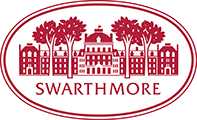To Swarthmore College Faculty, Staff, and Students:
The new Higher Education Opportunity Act imposes a variety of federal regulatory and reporting requirements on colleges and universities. Two provisions are designed to reduce illegal sharing of copyrighted works using file sharing on college networks. While the law will be clarified through the regulatory process, we are required to make a good faith effort to comply with these provisions as the Act is in effect.
In short, there are three requirements that we need to follow:
- We must make an annual disclosure to the College community about the risk of legal action and about the college’s procedures to detect and punish illegal distribution of copyrighted materials.
- We are required to offer alternatives to illegal file sharing, “to the extent practicable”.
- We must develop plans to “effectively combat” unauthorized distribution of copyrighted materials and we are required to consider using technology-based deterrents.
The library’s new Entertainment Guide, http://libguides.brynmawr.edu/entertainment, offers free and legal sources of music, movies, TV, and other entertainment from the library’s collections and online. It’s very extensive and I encourage you to check it out. We do not intend to provide other legal music and entertainment unless the regulations indicate that this effort is insufficient.
The last requirement is more challenging. We can not completely prevent illegal sharing of copyrighted works using technology, and efforts to that end would impact legal uses of the Internet. In addition, Swarthmore’s Electronic Privacy Policy is very explicit that we do not, and will not, monitor electronic content. (See http://www.swarthmore.edu/aup.xml ) We needed to find other ways to “effectively combat” illegal file sharing.
Representatives of ITS and the Dean’s Office have met with 2 student focus groups and Student Council. The unanimous recommendation from these groups was that computers registered to a person who has been identified as sharing copyrighted materials be blocked from using the College network for one week, and be reinstated only if the individual notifies the Chief Information Technology Officer (CITO), as the college’s Digital Millennium Copyright Act agent, that the files have been removed. The individual’s College accounts will be unaffected so this should have no impact on his/her ability to do academic work. He/she will be able to continue to use Swarthmore email, software, and other services such as Blackboard on public area computers.
In short, our new procedures for are as follows, with details at http://www.swarthmore.edu/its_copyright.xml
- When the college receives a copyright violation notice, ITS will notify the individual.
- The individual has 3 days to respond if they believe that the notice is in error or is covered by Fair Use.
- If the event is not covered by Fair Use and the notice is not in error, computers registered to the individual will be blocked from the College network for one week.
- If the individual notifies the CITO that the infringing material has been removed, the computer(s) will be unblocked at the end of the 7 day period.
If you have file sharing programs such as BitTorrent or LimeWire installed on your computer, we strongly urge you to delete them. Peer-to-peer file sharing programs make you vulnerable as soon as you connect to our campus network.
Illegal sharing of copyrighted materials is strictly prohibited both by College policy and the Digital Millennium Copyright Act of 1998. All members of the Swarthmore community are responsible for their personal decisions concerning illegal file sharing and must assume all resulting liabilities without support from the college.
Please do not hesitate to contact either of us if you have any questions about this very important topic.
Jim Larimore, Dean of Students
Gayle Barton, Chief Information Technology Officer
